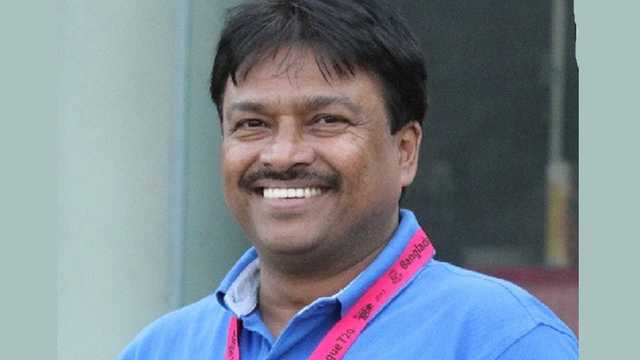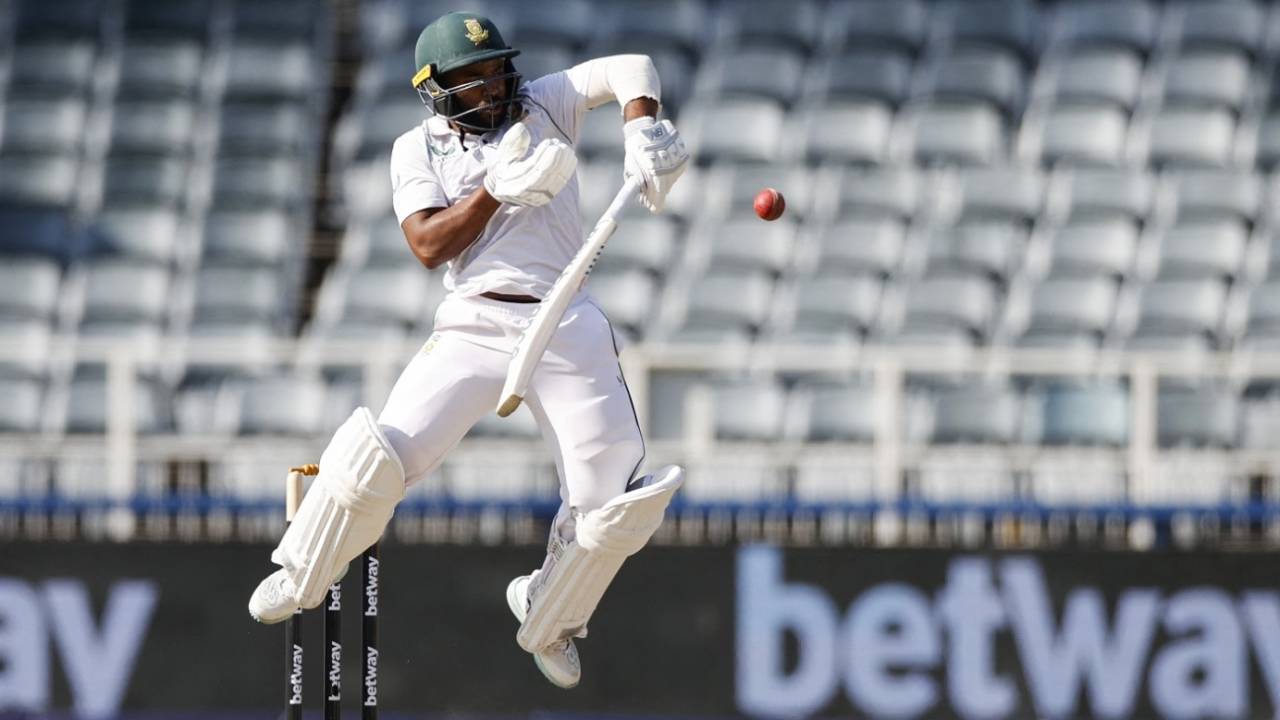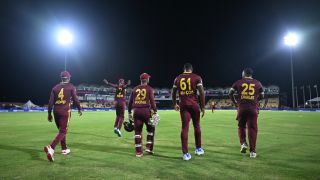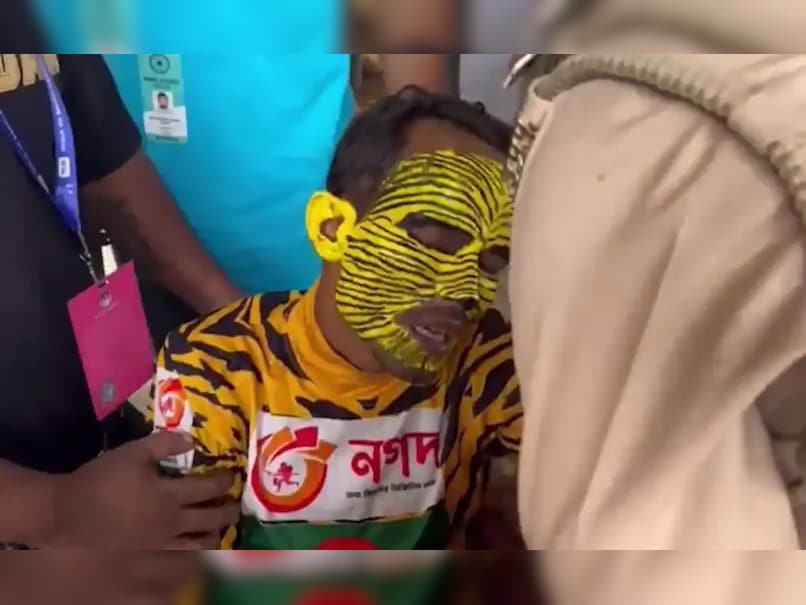Faruque Ahmed, former national cricketer and chief selector, has replaced Nazmul Hasan as the board president of the Bangladesh Cricket Board (BCB).
The BCB’s umpires committee chairman Iftekhar Ahmed confirmed the development to Cricbuzz on Wednesday. The BCB is currently having a board meeting in the Ministry of Youth and Sports wherein the former president resigned while Ahmed was elected.
Iftekhar, otherwise known as Mithu, responded in the affirmative when asked by Cricbuzz whether Faruque Ahmed has replaced Nazmul as BCB boss.
Cricbuzz had earlier reported that Nazmul was ready to quit. He is currently serving his fourth term as chief of the country’s cricket governing body, and has been in London with his wife ever since the unrest in the country began, triggered by the student protests against the recently dissolved Sheikh Hasina government.
Faruque, who played seven ODIs for Bangladesh, has previously served as BCB chief selector for two terms: from 2003 to 2007 and from 2013 to 2016. He had resigned without completing his second term as chief selector. This was because he was not ready to accept the expansion of three-member selection panel.
The National Sports Council (NSC) appointed Faruque Ahmed and Nazmul Abedin, a prominent local coach who recently spoke out against the BCB board, as its new directors. Following the announcement, they participated in the board of directors meeting held at the Ministry of Youth and Sports.
This move comes as the NSC replaced former directors Jalal Yunus and Ahmed Sajjadul Alam with Faruque and Nazmul. While Yunus resigned on Monday, Alam refused to step down, leaving the matter to the NSC’s discretion.
The BCB meeting was attended by directors Mahbubul Anam, Khaled Mahmud, Akram Khan, Salauddin Ahmed, Kazi Inam Ahmed, Iftekhar Ahmed, Fahim Sinha, and Saiful Alam Swapan.
Notably absent from Dhaka since the fall of the Awami League government on August 5 were former BCB president Nazmul Hassan and 16 other directors. During the meeting, the BCB changed their signatories from Ismail Haider to Fahim Sinha, as Haider Mallik, a known confidant of the former BCB president, is also currently available.
BCB Chief Executive Nizamuddin Chowdhury informed the board directors about Nazmul’s resignation as president. The present directors then unanimously elected Faruque as the new BCB president, although the two vice-president positions remain vacant.
The absence of a vice-president has raised concerns, as the Nazmul-led board had not appointed anyone to this role, leaving a leadership vacuum following his departure.
Faruque, addressing the media at a press conference at the Sher-e-Bangla National Stadium on Wednesday, emphasized his intention to establish a systematic approach within the board. “I resigned as a selector in the past because I opposed the system. Now, I aim to create a system that can run the board smoothly,” he stated.
He also expressed his belief that Tamim Iqbal still has a couple of years left in his cricketing career. “Tamim is a sensible player and one of the best from Bangladesh. Personally, if you ask me, I would want him to play for two-three more years. But me wanting that doesn’t mean it will happen. We will have to see what his fitness is like and we have to see which formats will be feasible. Tests maybe difficult but it’ll be good if it’s ODIs,” he said.
Faruque added that Tamim’s potential involvement with the board in the future would be welcomed. “It’s good if he can play but if he can’t play and he instead comes to the board, I will be very happy. He has leadership qualities and if guys like him come [to the board] we can do something good,” he added.
Faruque reiterated his stance on not retaining Chandika Hathurusingha as the national head coach, should he be elected BCB president. Hathurusingha has expressed willingness to step down if the BCB no longer requires his services, despite his contract running until the 2025 Champions Trophy.
“I am not sure about the details of the contract with Chandika Hathurusingha. I am still in the same place I was before. I haven’t deviated from what I said (I will not keep Chandika if elected as BCB president),” he said. “Now, I need to formally review some things. I will see how things should be done, whether we can find someone better or at least someone who can perform well, and then I will talk. I haven’t really moved from that [last] stance.
“At this moment, it’s difficult to say. I will talk to our colleagues in two or three days. When a coach is brought in, there are usually three or four shortlisted candidates. We need to see whether they can come or not.”
Faruque also emphasized the importance of local coaches. “I think local coaches are very good. I shouldn’t be the sole decision-maker. Perhaps the responsibility falls more on me because I will make the decision, but I also need to consult with others.”
Faruque noted the need to establish clear guidelines for cricketers, including a decision on Shakib Al Hasan’s future with the national team. The all-rounder has been absent from Bangladesh due to his political involvement after the recent election defeat of the Awami League, where he served as a lawmaker.
“We will discuss Shakib’s situation and whether he can continue under the current circumstances. We are also considering adding rules regarding player conduct during tours, including restrictions on endorsements,” Faruque said, alluding to Shakib’s endorsement activities during his time in Bangladesh.




